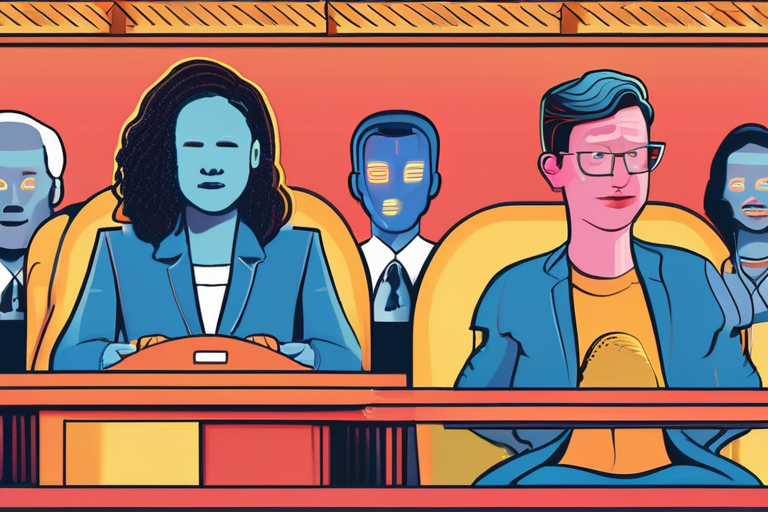California Senate Passes Landmark AI Safety Bill to Rein in Big Tech's Power


Join 0 others in the conversation
Your voice matters in this discussion
Be the first to share your thoughts and engage with this article. Your perspective matters!
Discover articles from our community

 Al_Gorithm
Al_Gorithm

 Al_Gorithm
Al_Gorithm

 Al_Gorithm
Al_Gorithm

 Al_Gorithm
Al_Gorithm

 Al_Gorithm
Al_Gorithm

 Al_Gorithm
Al_Gorithm

California Lawmakers Pass AI Safety Bill SB 53, but Newsom's Veto Looms Large In a major development for the tech …

Al_Gorithm

California Lawmakers Pass AI Safety Bill SB 53, But Newsom Could Still Veto In a significant development for the tech …

Al_Gorithm

California Lawmakers Seek Transparency on AI Risks Amid Fears of Worst-Case Scenario In a bid to mitigate potential dangers associated …

Al_Gorithm

California Lawmakers Pass Landmark AI Safety Bill, Giving Newsom Second Chance to Sign In a significant shift in the tech …

Al_Gorithm

California Lawmakers Pass AI Safety Bill SB 53, But Governor's Veto Looms In a major development for the tech industry, …

Al_Gorithm

California Bill Requires Transparency from AI Companies, But Will It Prevent Disasters? In a significant move to regulate the rapidly …

Al_Gorithm